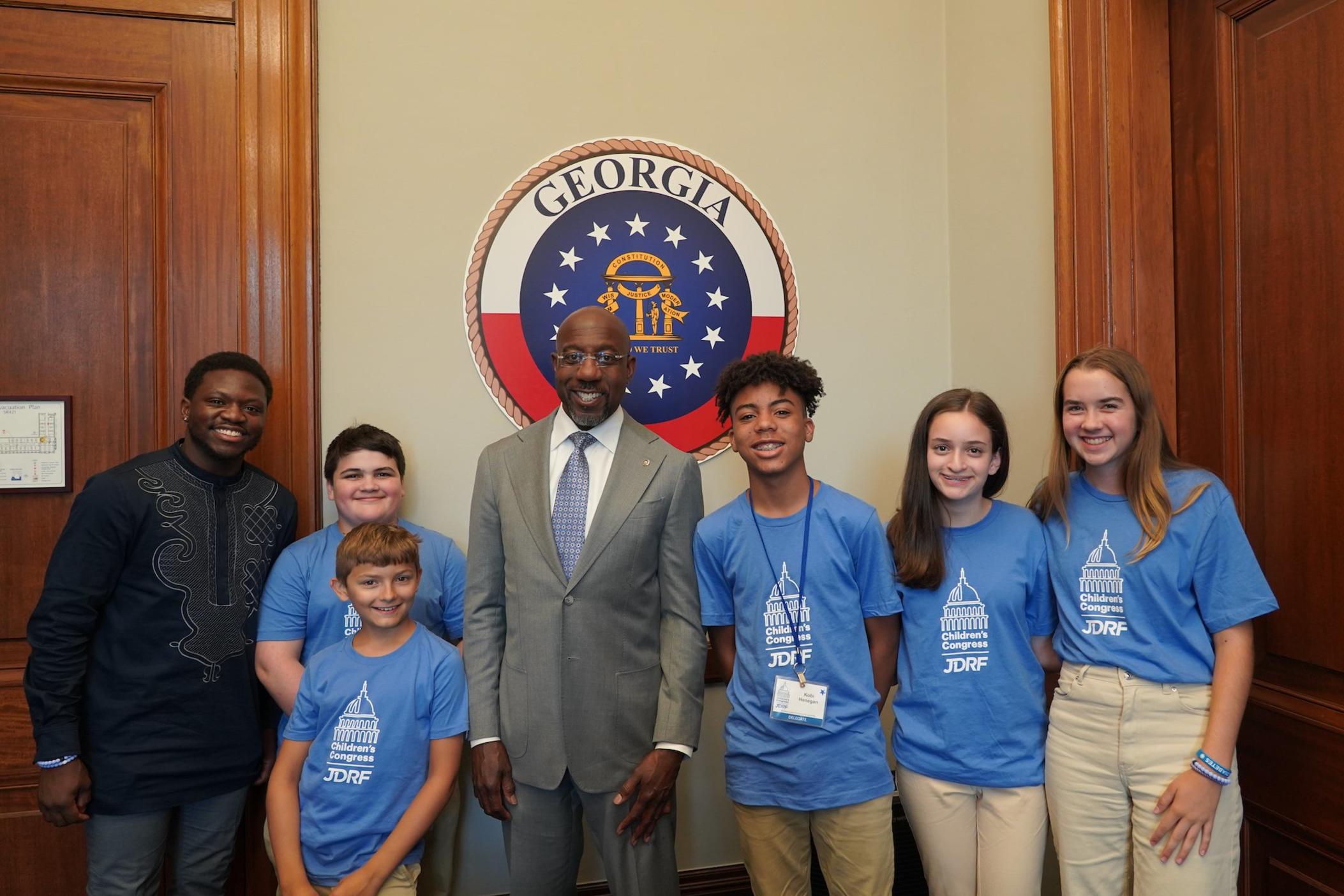Section Branding
Header Content
Taxpayer dollars at work: What your U.S. senators from Georgia are doing for the week ending July 14
Primary Content
This summer, GPB News Democracy intern Ambria Burton is following the activities of U.S. Sens. Jon Ossoff and Raphael Warnock.
Each week on Fridays, we'll run down a list of activities that follow your dollars back to communities in Georgia.
This week, Ossoff and Warnock introduced legislation focused on maternal mortality, a universal insulin cap, small-business support for disabled veterans, fentanyl trafficking and Georgia's citrus industry.
Maternal mortality
Warnock, with Sen. Alex Padilla (D-CA), reintroduced legislation on Tuesday that will help lower the maternal mortality death rates seen in women of color.
The legislation comes after a recent study by the Journal of American Medical Association found that maternal mortality doubled between 1999 to 2019, with most deaths being Black women.
The Kira Johnson Act, named after a black woman who died from complications related to maternal health, will provide funding to community-based organizations working to improve the maternal health outcomes in women of color, according to a July 11 press release.
It will also create a five-year, $50 million grant program at the Department of Human Services "to improve outcomes and reduce bias, racism, and discrimination in maternal care settings."
"The rate of maternal mortality is an ongoing and worsening crisis" Warnock said in a press statement. "Black women are particularly at risk in the state of Georgia, where they are three to four more likely to die related to childbirth or pregnancy than their white sisters. We can't get this done soon enough."
Service-disabled veterans small business support
Ossoff introduced new bipartisan legislation helping service-disabled veterans who own small businesses in Georgia.
The Investing in VETS Act will help service-disabled veteran business owners expand their businesses to new markets by assisting them to compete for Federal government contracts.
Per a July 11 press release, the legislation requires that "the Federal government and its 24 agencies award at least five percent of its total contracts to service-disabled Veteran-owned Small Businesses per fiscal year."
According to the Bureau of Labor Statistics, over 97,000 of the 700,000 veterans in Georgia own small businesses within the state.
Fentanyl trafficking
Ossoff is also introducing legislation to stop the trafficking of fentanyl in Georgia and nationally by holding companies accountable for their failure to stop the sale of dangerous drugs like fentanyl.
According to the July 12 press release, the Fentanyl Trafficking Prevention Act "would subject social media companies to a maximum of $10 million in criminal penalties for facilitating the unlawful distribution or dispensing of opioids, synthetic opioids, methamphetamine, or cocaine — actions that already violate service provider's terms of service."
This legislation comes after the U.S. Drug Enforcement Administration Administrator said last week that social media companies are not doing enough to address the fentanyl crisis, especially with cartels using social media to sell drugs.
Young insulin advocates
This week, a 9-year-old Georgia insulin advocate met with Warnock at the U.S. Capitol to call for the Senate to approve Warnock's $35 universal insulin cost cap legislation.
Evan, diagnosed with diabetes at 2 years old, joined Warnock "to urge members of Congress to support Type 1 diabetes research," per a July 12 press statement.
"Evan is 9 years old and a Type 1 diabetic," Warnock said in a video. "His family has to work to keep his [blood] sugar level at a good rate throughout the day. The last thing they should have to worry about is the cost of insulin."
According to Warnock, a bipartisan prescription drug pricing bill is expected to be introduced on the Senate floor this month, with the insulin cost cap legislation on track to be a part of it.
Citrus industry
Ossoff introduced legislation to strengthen Georgia's citrus industry by ensuring the National Citrus Disease Subcommittee includes representation from Georgia's citrus industry.
The bill guarantees that Georgia citrus growers are present when the subcommittee makes key decisions for the industry.
According to a July 12 press release, the Georgia Citrus Development Act of 2023 adds Georgia as a member of the CDS, created in 2014 "to advise the U.S. Secretary of Agriculture on advancing industry-related research needed to combat citrus diseases and pests."


